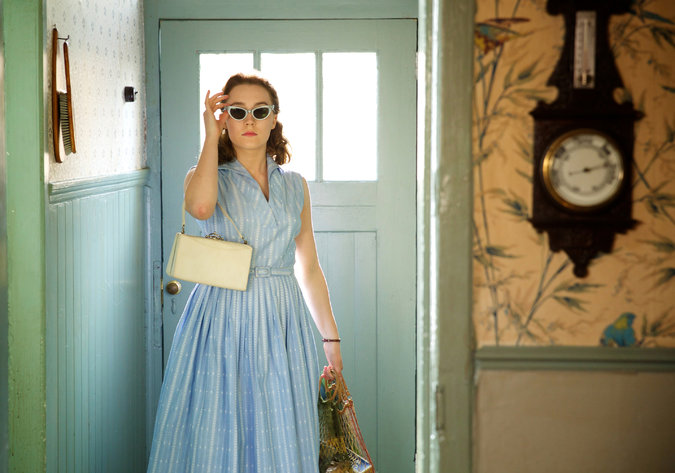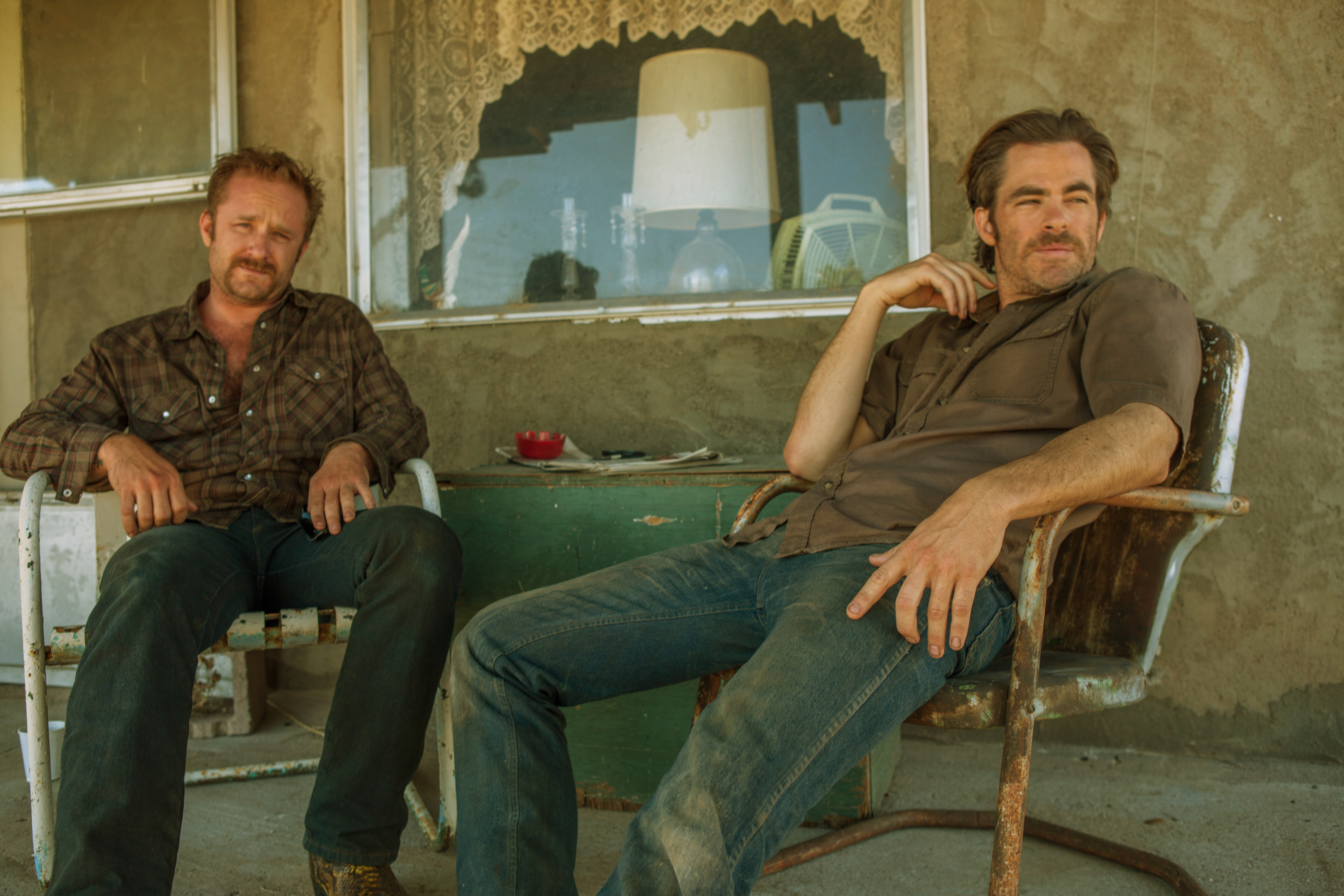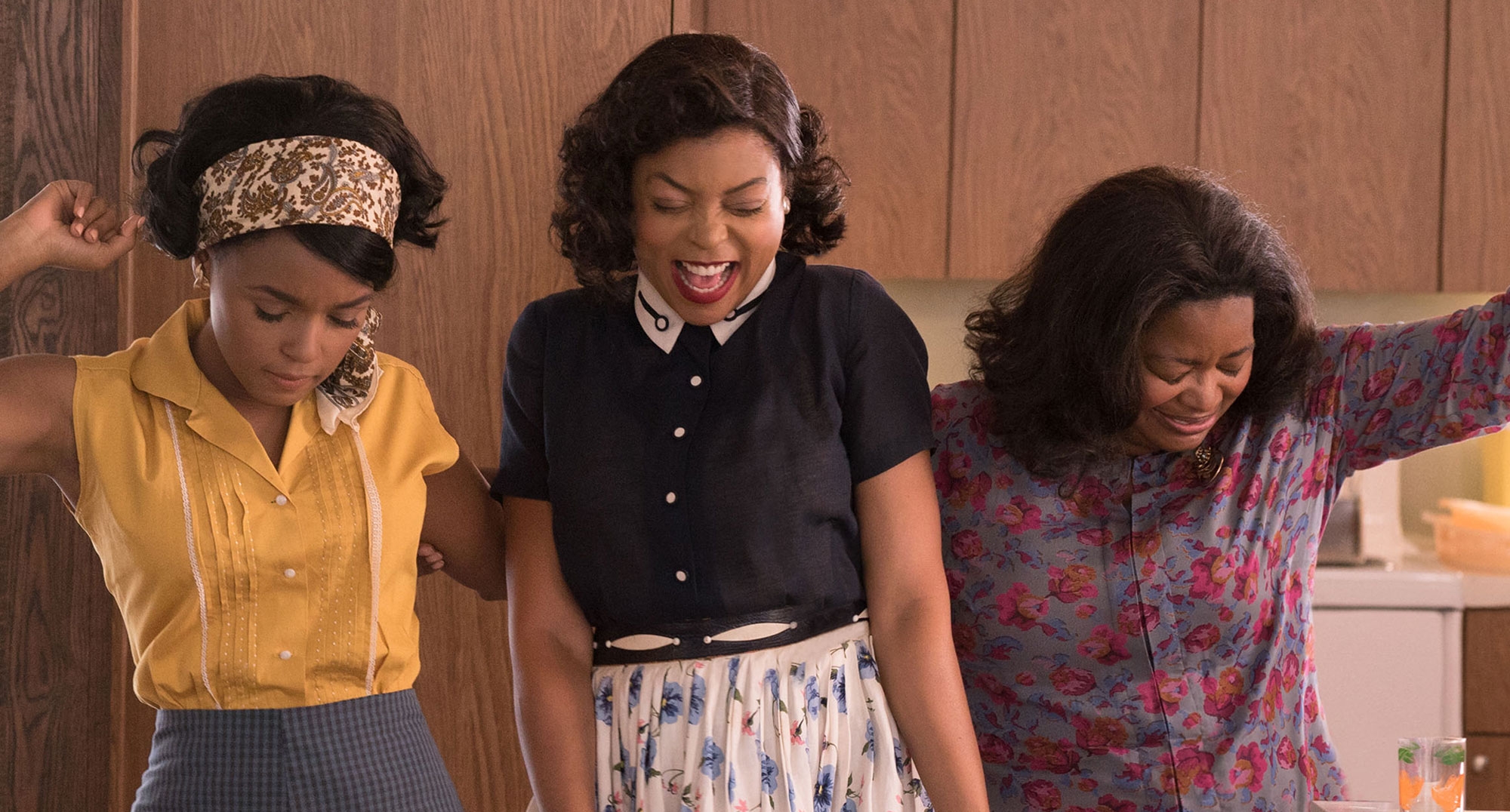“Brooklyn” is a feel-good movie and a classic American story. Directed by John Crowley and written by Nick Hornby, it tells the story of a young woman named Eilis Lacey (pronounced “A-lish”) who moves to Brooklyn in the early 1950s to escape a bleak Irish town and make a new life for herself. Her story is a familiar one: after her older sister Rose raises enough money to send her to America, she endures a rough journey across the Atlantic before encountering a new home with strange customs in Brooklyn. Her amusingly maternal landlady takes a liking to her, and she is tutored in the social scene by two fellow Irish tenants who take her to dances. She is set up with a job at a department store, where she initially struggles to assert her personality or connect with clients. At a social event one evening, Eilis dances with a young man named Tony. They take to each other and it quickly comes out that he is not Irish – he’s Italian, but he comes to Irish dances because he likes Irish girls. As they begin dating, Eilis’ newfound confidence is evident at work and in her home life. However, her good fortune is cut short by bad news from Ireland that forces her to return home for a time and make some tough choices.
The subject matter of “Brooklyn” is cliché, but it manages to convey sincerity and freshness through beautiful depictions of urban life. It is centered around a brilliant lead performance by Saoirse Ronan. Ronan plays the character of Eilis with girl-next-door charm and incredible expressiveness. She gives one of those rare performances that rises above an archetype and owns the role, and it is not difficult at all to see why she earned an Oscar nomination for it. The rest of the cast is solid but Ronan easily steals the show. The film is whimsical but grounded: both the city and the Irish coast are gorgeous, while Eilis is lovable and triumphant.
Though the hopeful tone of “Brooklyn” is heartwarming, there remains a sense that the characters in this film are simply too nice. There are few villains; Eilis’ manager Miss Kelly is petty and mean, but she is left behind after the first ten minutes, only reappearing briefly near the end. Eilis’ gossipy peers turn out to have good hearts, and she does not encounter crime, danger, or exploitation at any point in the film. Her employer and landlady are both benevolent, as is the first man with whom she becomes involved: Tony.
Tony and his role in the ending comprise the film’s one serious flaw. Emory Cohen’s acting has been praised by many, but I see no basis for this. Tony is a “sweet-but-goofy” archetype completely devoid of substance; suppressing talk of baseball and his mother is the closest he gets to a personality. He does not replace the suppressed topics or bring anything to the table; instead he merely absorbs Eilis’ thoughts and experiences whenever they spend time together. It is hard to find any justification for their relationship other than his status as the first man who approached her in New York, which strikes me as wildly insufficient.
This issue comes to the forefront at the end of the film, when Eilis is forced to make a choice between a life in Ireland and a life in New York. The New York path is presented as a symbol of independence and opportunity provided by the vibrant city, but in context it means nearly the opposite. Tony wants Eilis to move to a country house in Long Island to be a housewife and raise his children, abandoning her career aspirations in the process. By contrast, her Irish suitor was actually more supportive of her career and offered her a more independent and fulfilling future. The filmmakers’ choice to use Tony as Eilis’ icon of New York is misguided and undermines the themes and implications of the movie. In spite of that misstep, “Brooklyn” is a film that will keep you charmed as you watch and leave you nostalgic for days.


